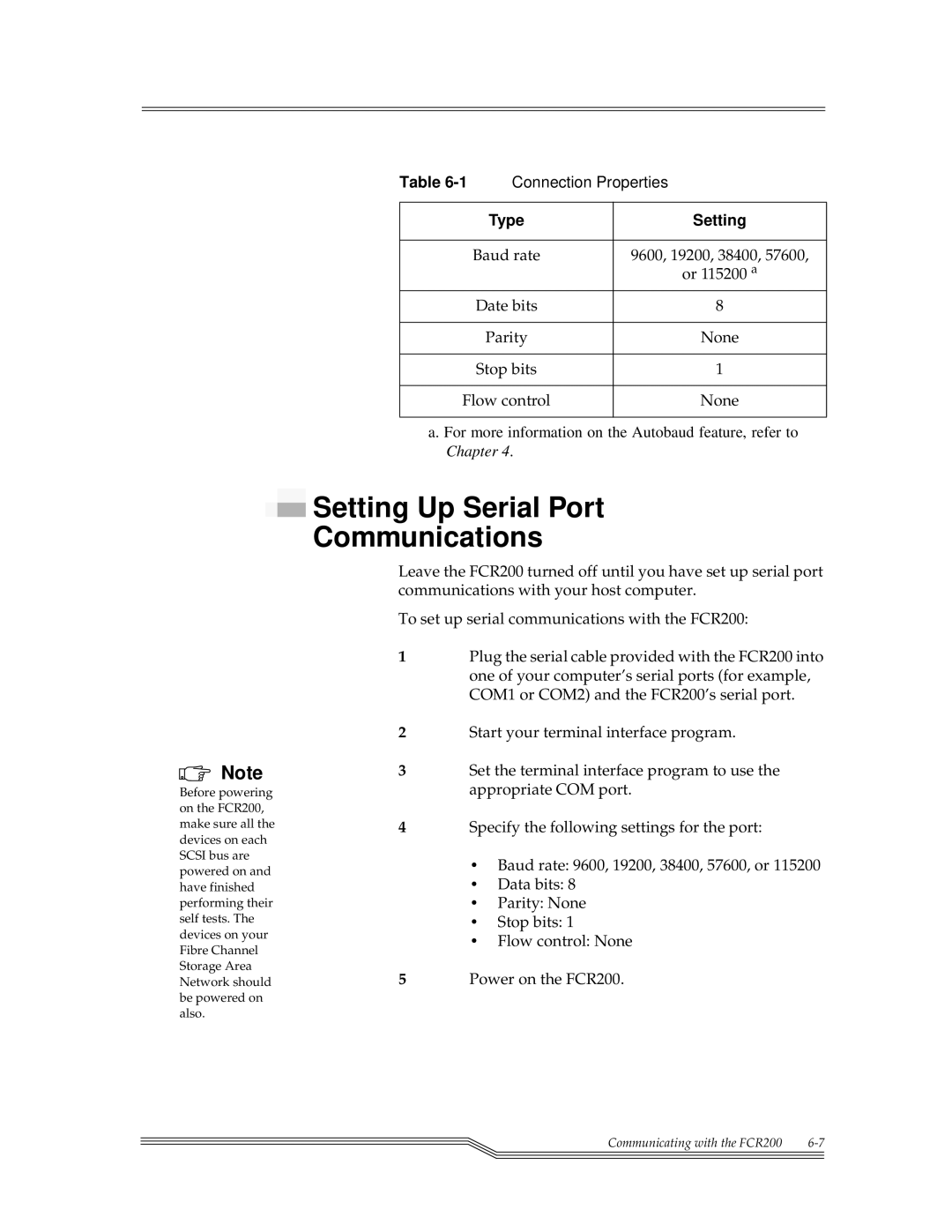
Table | Connection Properties | |
|
|
|
| Type | Setting |
|
|
|
| Baud rate | 9600, 19200, 38400, 57600, |
|
| or 115200 a |
| Date bits | 8 |
|
|
|
| Parity | None |
|
|
|
| Stop bits | 1 |
|
| |
Flow control | None | |
|
|
|
a. For more information on the Autobaud feature, refer to
Chapter 4.
 Setting Up Serial Port
Setting Up Serial Port
Communications
Leave the FCR200 turned off until you have set up serial port communications with your host computer.
To set up serial communications with the FCR200:
1Plug the serial cable provided with the FCR200 into one of your computer’s serial ports (for example, COM1 or COM2) and the FCR200’s serial port.
2Start your terminal interface program.
| Note | 3 | Set the terminal interface program to use the | |
| ||||
Before powering |
| appropriate COM port. | ||
on the FCR200, |
|
|
| |
make sure all the | 4 | Specify the following settings for the port: | ||
devices on each |
|
|
| |
SCSI bus are |
| • Baud rate: 9600, 19200, 38400, 57600, or 115200 | ||
powered on and |
| |||
| • | Data bits: 8 | ||
have finished |
| |||
performing their |
| • | Parity: None | |
self tests. The |
| • | Stop bits: 1 | |
devices on your |
| • | Flow control: None | |
Fibre Channel |
| |||
|
|
| ||
Storage Area | 5 | Power on the FCR200. | ||
Network should | ||||
be powered on also.
Communicating with the FCR200 | |
|
|
|
|
